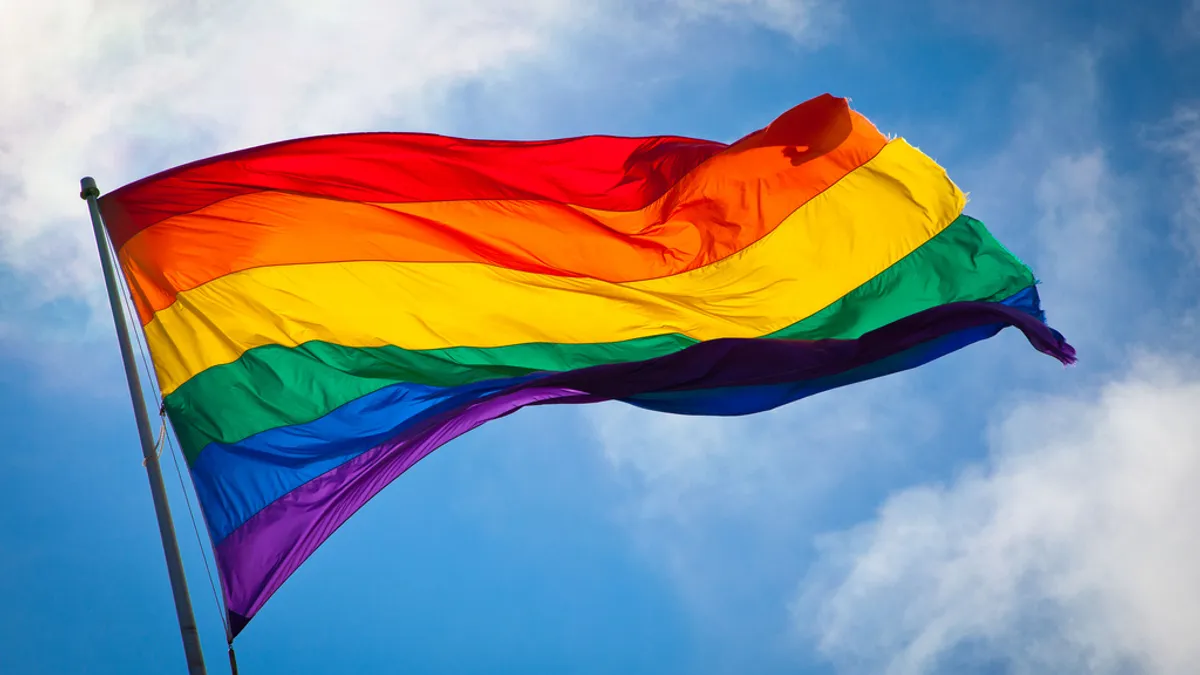Dive Brief:
- Congress should pass legislation that creates explicit workplace protections for LGBTQ individuals, the U.S. Commission on Civil Rights recommended in a Dec. 7 report to Congress.
- Citing its own earlier findings, the independent agency said that LGBTQ workers have faced a long history employment discrimination by federal, state and local governments and private employers. Moreover, the "inconsistent and irreconcilable patchwork of state laws against LGBTQ workplace discrimination and federal court decisions interpreting existing federal law render LGBTQ employees insufficiently protected from workplace discrimination." To effectively protect LGBTQ employees in the workplace, Congress should pass legislation that adds explicit protections against workplace discrimination on the basis of sexual orientation and gender identity, the report says.
- The Commission, tasked with advising Congress and the President on matters of civil rights policy, says its mandate "is as pressing now as it has ever been."
Dive Insight:
Title VII of the Civil Rights Act of 1964 prohibits employment discrimination on the basis of race, color, sex and national origin. The federal appeals courts are split on whether discrimination based on sexual orientation amounts to sex discrimination. The 2nd and 7th Circuits have held such discrimination is prohibited, while the 11th Circuit has taken the opposite position. Additionally, the 6th Circuit recently held that discrimination against employees, either because of their failure to conform to sex stereotypes or their transgender or transitioning status, is prohibited by Title VII. The 8th Circuit is grappling with the question right now.
Federal agencies disagree over the law's coverage as well. The U.S. Equal Employment Opportunity Commission (EEOC) maintains that Title VII prohibits discrimination on the basis of both sexual orientation and gender identity. It's enforcing that position despite opposition from the Trump administration; the U.S. Department of Justice has said in a friend-of-the-court brief that Title VII does not include sexual orientation discrimination.
Bills that would prohibit discrimination in employment on the basis of sexual orientation and gender identity have been introduced in Congress many times, without success.
In the workplace, confusion over LGBTQ protections is compounded by the fact that many employees may assume they are protected from sexual orientation discrimination. And many state and local laws do grant such protections. Management-side attorneys continue to recommend that employers refrain from taking adverse employment actions against employees because of their sexual orientation or transgender status. And despite some risks, many employers have opted to include LGBTQ status in nondiscrimination and anti-harassment policies and training. Others have worked to create an inclusive environment, encouraging management to communicate with transgender workers in the event of a transition, for example, can go a long way in promoting a culture of understanding, one attorney previously told HR Dive.













